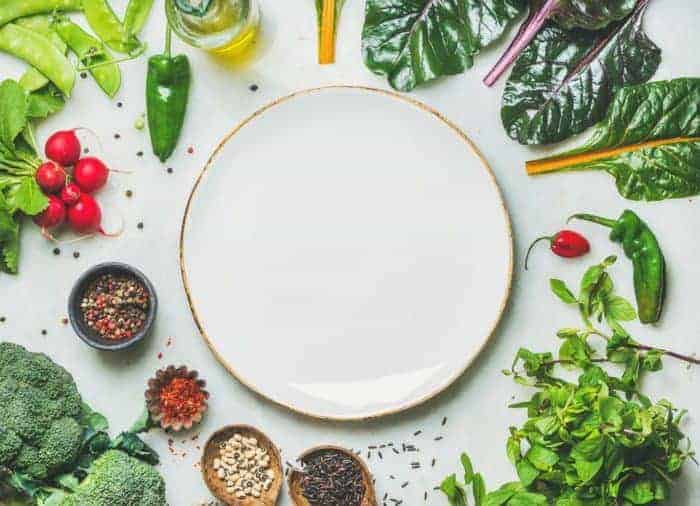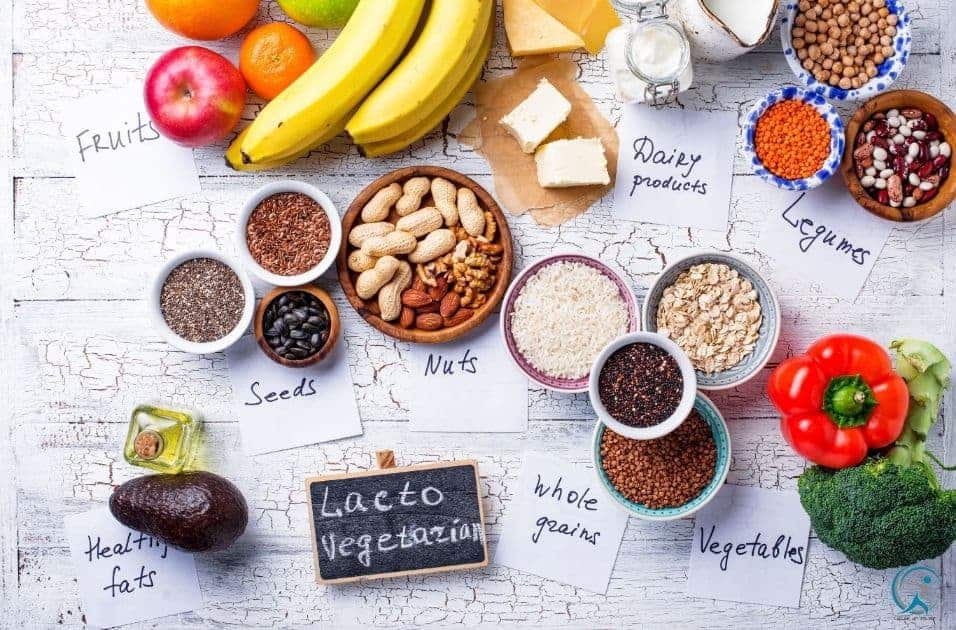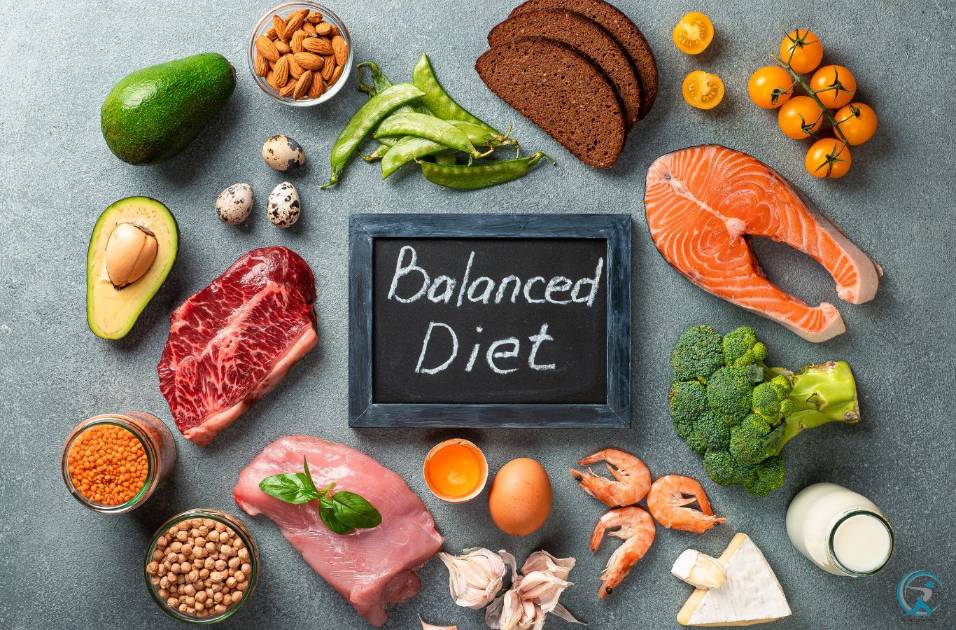Having a healthy balanced diet may lead to cancer prevention. Read more to learn about reducing your cancer risk with healthy food choices.
As we age, our bodies are less able to fight off disease. This is especially true regarding cancer—an illness that affects many people worldwide and can be difficult to treat. Fortunately, studies have shown many foods reduce your risk of developing certain types of cancer. This guide will take you through some of these foods and explain how they lower your chances of getting sick.
Antioxidants are linked to cancer prevention and treatment.
Antioxidants are natural compounds that can help prevent the growth of cancer cells. They neutralize free radicals in the body, unstable molecules that damage healthy cells. Free radicals can be created by cigarette smoke, pollution, or other environmental toxins. They also occur naturally as part of normal body processes such as metabolism and cellular respiration.
Antioxidants can be found in many foods—fruits and vegetables, whole grains, nuts, seeds, and legumes (beans). But antioxidants are also found in tea and coffee because these beverages contain polyphenols—chemicals that enhance antioxidant activity by increasing oxygen uptake at the cellular level to boost metabolism, so cells function better overall. Evidence suggests that drinking 3 cups of coffee daily could reduce your risk of certain types of cancer by about 50%.
Eating a wide variety of vegetables each week has been linked to a reduced risk of developing numerous cancers.

- Vegetables are rich in antioxidants, which help prevent cancer.
- Antioxidants can also help treat cancer.
- Antioxidants help protect against other diseases, including heart disease and diabetes. You can get antioxidants from vegetables and fruits, or you can use supplements if you don’t like to eat vegetables and fruits often enough to get the right amount of antioxidants your body needs each day.
Eat a good variety of foods lowers the risk of cancer.
Eating various foods helps you get the nutrients you need, improves your taste buds, and increases satisfaction. Eat fruits and vegetables at least five times a day. Choose whole grains over refined grains (white bread, white pasta) whenever possible. Include beans or peas in your meals at least three times each week. Limit red meat to less than 18 ounces per week; include fish, poultry, and eggs as protein sources instead. These healthy food choices can help reduce cancer risk by reducing exposure to harmful substances such as saturated fat and pesticides that occur naturally in foods grown on farms where animals are raised for food production purposes.
Take it easy on processed foods.
Processed foods are high in sodium and sugar, which leads to high blood pressure. The same goes for unhealthy fats—these are often found in processed foods like french fries and potato chips. Processed foods also tend to be high in calories, so you get more than just empty calories when you eat them! They also tend to have a lot of additives, artificial ingredients, and preservatives that may be bad for your health over time.
Choose whole grains instead of refined grains.

Whole grains, like brown rice and whole-wheat pasta, are better for you than refined grains. Refined grains have removed their bran, germ, and endosperm (the layers of fiber-rich nutrients that give the grain its shape) to make them white or yellow. Because of this process, they lose some of their nutrients but gain sugar—which can lead to weight gain—and lose fiber. Whole-grain foods have been shown to reduce the risk of heart disease and diabetes by lowering blood pressure.
Eat lots of plant-based foods, including fruits and veggies.
The best way to reduce cancer risk is to eat a healthy diet with plenty of plant-based foods. A plant-based diet is rich in fruits, vegetables, and whole grains. Plant-based diets have been linked to a lower risk of certain cancers, including colorectal, lung, and prostate cancers.
A diet high in fruits and vegetables may help protect against cancer because they’re rich in vitamins, minerals, and antioxidants that are thought to be beneficial for your health. For example,
- Fruits are sources of vitamin C (a powerful antioxidant) and other nutrients that may help protect us from cancer. Many types of fruit also contain higher amounts of fiber than many other foods, meaning they fill you up faster, making you less likely to overeat or crave unhealthy foods later on. “
Eat only small portions of red meat, and eat more fish or poultry instead.

- Saturated fat in red meat has been linked to colon cancer.
- Heme iron in red meat may increase your chances of developing colorectal cancer.
- In the meat industry, nitrates and nitrites are used as preservatives; these additives have been shown to cause cancer in animals and humans. They’re often found in processed meats like hot dogs and lunch meats.
- Heterocyclic amines (HCAs) are chemicals that form when you cook meat at a high temperature—such as frying bacon or grilling hamburgers over an open flame—and they can damage DNA and cause mutations that lead to cancer cells forming in your body. You can decrease exposure by choosing lower-temperature cooking methods such as boiling or roasting instead of frying or grilling with charcoal briquettes or other fuels that produce higher amounts of HCAs during cooking time.
Limit salty foods and sugary drinks.
The three main culprits in cancer-causing foods are salt, sugar, and fat. They’re called “carcinogens” because they can cause cancer.
Salt is found in processed foods like savory snacks, canned soups, and ready meals. It is also used as a preservative to stop food from going off before it can be sold. Sugar is hidden in processed foods such as cakes, biscuits, and even some savory snacks! Fat comes from saturated fats (found in animal products such as meat or dairy) or unsaturated fats (used for cooking).
It’s easy to cut down on salty foods like crisps by making your baked chips with no added salt: just slice up potatoes into chip shapes using a mandolin slicer or knife, then bake them until crispy at 200 °C/400 °F/Gas Mark 6 for 25 minutes, turning once halfway through cooking time – they’ll taste fantastic without all that excess salt too!
Plant-based diets reduce cancer risk, focusing on lean proteins, fruits, vegetables, and whole grains.
Eating plenty of different foods is important to get a wide variety of nutrients. This will help you avoid vitamin and mineral deficiencies, increasing your cancer risk.
You should also choose whole grains instead of refined grains because whole grains provide more fiber and other nutrients that may protect against cancer. Whole grains include brown rice, oats, and whole-wheat bread; refined grains are white rice and white bread.
If you’re trying to reduce your calorie intake or lose weight, try substituting nonfat dairy products for full-fat versions (e.g., skim milk instead of whole milk). On top of salads or baked potatoes, you can also use nonfat Greek yogurt or cottage cheese instead of regular yogurt or sour cream. If you need more help,
Cruciferous vegetables like broccoli, cauliflower, and kale have increased cancer-fighting properties.
Cruciferous vegetables like broccoli, cauliflower, and kale contain a compound that activates enzymes in the body that may reduce cancer risk.
A major study of more than 100 foods found strong evidence that crucifers are particularly effective at reducing certain cancers when eaten regularly.
In addition to their cancer-fighting properties, crucifers are also high in nutrients, vitamins, and minerals such as folate (folacin), which is important for pregnant women because it helps prevent neural tube defects; vitamin C; calcium; potassium; iron, and zinc. They’re also good sources of fiber, which helps you feel full longer, so you eat less later on!
Tomatoes contain lycopene, which may reduce your risk of prostate and other types of cancer.
Tomatoes also contain other antioxidants that help fight cancer. Lycopene is also found in other foods, such as pink grapefruit and watermelon.
The antioxidant activity of green tea is thought to be effective against certain types of cancers like breast cancer.
Antioxidants are thought to reduce the risk of cancer, including breast cancer. Antioxidants help prevent cell damage that can lead to cancer. They do this by neutralizing or stopping the damaging effects of oxygen-derived free radicals in your body. In other words, they scavenge and eliminate harmful substances before they can damage your cells.
Green tea contains various antioxidants, including epigallocatechin gallate (EGCG) and flavonoids such as catechins and polyphenols. The antioxidant activity of green tea is thought to be effective against certain types of cancers like breast cancer because these chemicals work together to block tumor growth and promote cell death (apoptosis).
Dairy products have been shown to have a protective effect against colorectal cancer.
Dairy products have been shown to have a protective effect against colorectal cancer. The calcium in dairy products may help reduce the risk of colon cancer, a common type of digestive cancer that develops in the lining of your rectum and colon. Some studies suggest that dairy products may protect against other types of cancer.
It’s important to note that these studies aren’t definitive—they don’t prove that consuming dairy causes you to live longer or reduces your risk of developing cancer. But they do show an association between eating more dairy and living longer; this is good news for those who enjoy cheese, yogurt, and ice cream!
Soy foods are thought to reduce the risk of breast cancer due to their isoflavone content.
Soy foods are thought to reduce the risk of breast cancer due to their isoflavone content. Soybeans are legume and soy products such as tofu, tempeh, miso, and soy milk. These foods contain a high concentration of phytoestrogens (plant compounds that mimic estrogen in the body). The richest source of these compounds is soybeans. However, they can be found in other foods, including tofu and some types of beans.
A healthy diet contains cancer-fighting foods and lowers your cancer risk.

There are many ways to ensure you get a good supply of these cancer-fighting nutrients. Here are some tips for adding more vegetables, fruits, whole grains, and fish or seafood to your diet:
- Add more vegetables. You can get your daily dose of cancer-preventing nutrients by eating two daily servings. One serving is equivalent to 1 cup of raw leafy greens, 12 cups of cooked leafy greens, or one medium vegetable (such as broccoli). If you don’t like eating raw foods straight from the garden, try sauteing them with garlic and olive oil until they’re soft enough to chew comfortably.
- Limit red meat, processed meat, and foods high in saturated fat and added sugars. If you eat many processed foods — like canned soup or frozen dinners — try switching to fresh ingredients. You’ll eat less sodium and get more fiber and vitamin C from raw fruits and vegetables.
- You don’t have to give up the things you love, such as chocolate or cheese, but limit those treats to fewer than once a week if possible.
Conclusion
The bottom line is that the more vegetables you eat, the better your chances are of lowering your cancer risk. And the best thing about vegetables? They’re delicious and easy to prepare. So skip those chips and grab a carrot from the fridge instead!
FAQs about Healthy Food Choices that lower the risk of cancer
u003cstrongu003eMeats, fish, and poultry.u003c/strongu003e Studies have found that people who eat the most red meat are more likely to develop colorectal cancer.u003cbru003eu003cstrongu003eDairy foods.u003c/strongu003e Research has found that people with high levels of galactosylceramide in their blood are at a higher risk of developing colorectal cancer. Dairy products are also lower in saturated fat and higher in calcium.
Eating healthy foods can help you maintain good health, feel energetic, and lose weight.
Excellent choices are organic green, red, yellow, and orange vegetables and foods, such as broccoli, apricots, beets, carrots, cauliflower, sweet potatoes, yellow squash, and tomatoes. Add lots of colorful, green vegetables to salads, soups, and stews. Add sweet beets to salads. Sweet peppers, raw or cooked, are also cancer-fighting.
Eating unhealthy foods can cause obesity, diabetes, joint problems, heart disease, high blood pressure, and constipation. Unhealthy foods such as fast foods, sweets, and soft drinks contain high amounts of calories, fat, and sodium.
Many studies show that dietary changes can help you reduce your chance of developing cancer, heart disease, diabetes, osteoporosis, and other ailments. An article in u0022The Cleveland Clinic Journal of Medicineu0022 stresses that u0022dietary choices may even reduce your risk of developing Alzheimer’s disease by as much as 60%u0022.
As a veteran fitness technology innovator and the founder of GearUpToFit.com, Alex Papaioannou stands at the intersection of health science and artificial intelligence. With over a decade of specialized experience in digital wellness solutions, he’s transforming how people approach their fitness journey through data-driven methodologies.
